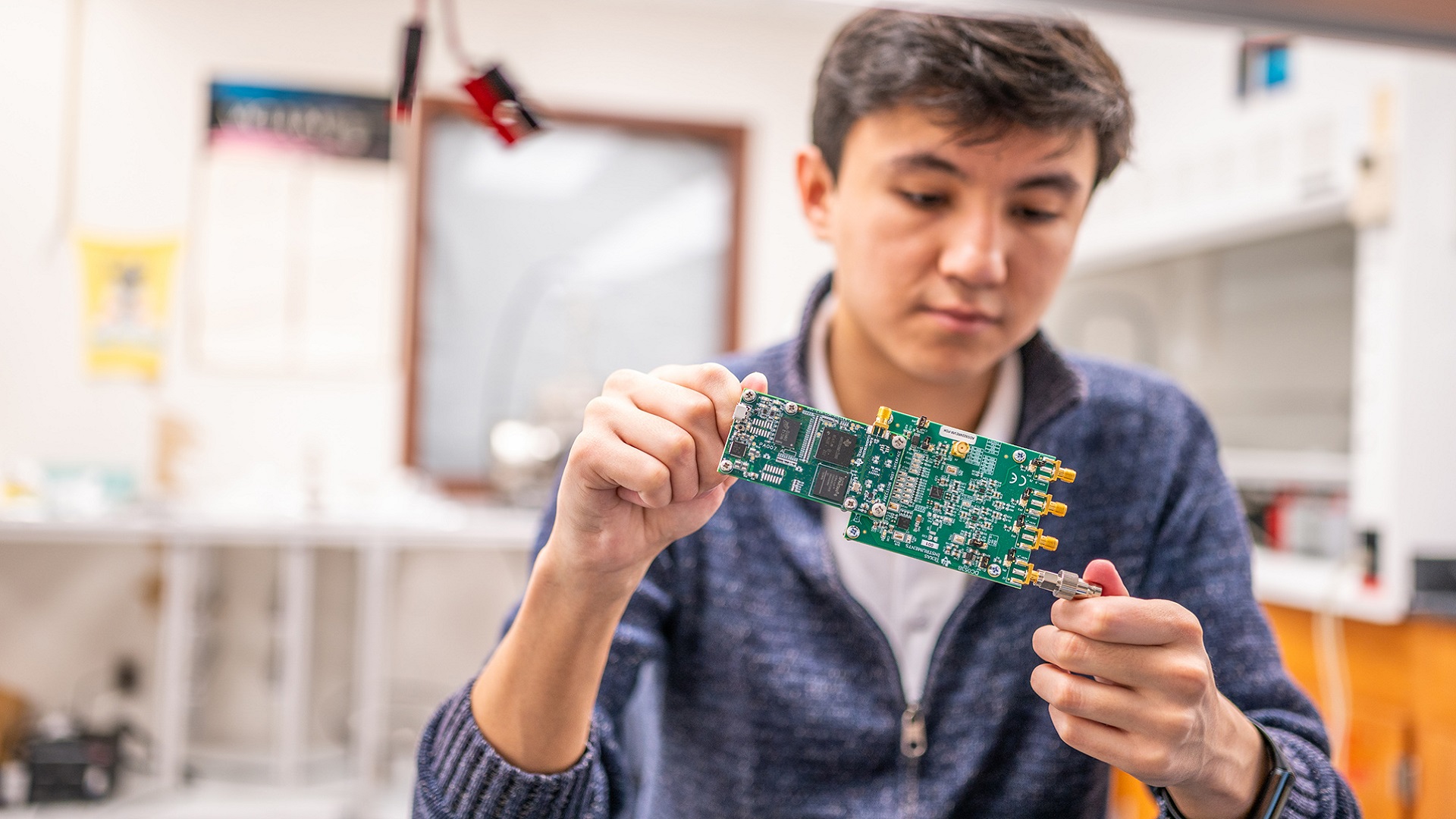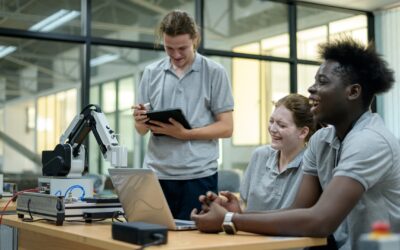Developing the next generation of the Industry 4.0 workforce requires academia to not only teach complex STEM subjects but have the cutting-edge technical space to do so. Composed of digital learning spaces and advanced material research laboratories, Michigan State University’s proposed new Engineering and Digital Innovation Center aims to be an Industry 4.0 dynamo. The facility will serve two defined goals — cultivate a skilled tech workforce and become a regional hub for advanced manufacturing research. The project is currently in the architectural design phase.
“If you look at the constructs of Industry 4.0, you flow from concept to analysis design to production all within the digital regime,” said Leo Kempel, MSU College of Engineering Dean.
“An engineer will have the idea of how to design a part, come up with the initial design and run it through analysis. Once the design is checked, verified and all the basic parts and pieces process, you can make sure all the things work. Only then does it go to a manufacturer who will get the design files digitally and produce it.”
This digitalization of manufacturing is happening now and on a global scale, Kempel added.
“That’s where things are going so that’s what we are preparing students for. That’s what we are aligning our research programs for — to support the state’s adoption of Industry 4.0.”
According to statistics from Michigan’s Department of Labor and Economic Opportunity, Michigan is the national leader in manufacturing job growth, creating 121,000 new manufacturing jobs from 2009 to 2021. In total, the state sports a manufacturing workforce of over 600,000.
However, Michigan’s manufacturing workforce will need to upskill its technological savvy to remain competitive on the global scale. Digitization of manufacturing is increasing rapidly, and over the next decade the U.S. Bureau of Labor Statistics estimates 682,800 new jobs will need to be filled in computer and information technology occupations.
Digital Innovation and Advanced Material Research
To build the Industry 4.0 worker of tomorrow, the new facility will feature a two pronged approach.
“The digital innovation component of the building plays directly into Industry 4.0,” Kempel said.
“We are finding more and more student interest in majors that rely mainly on computing systems — that is computer science, data science and all aspects of digital design. The fact that we will have a facility to increase the number of these students means we can teach 21st century students in 21st century ways within 21st century facilities.”
But research into advanced materials for semiconductors and microelectronics is equally important, Kempel stressed.
According to the Semiconductor Industry Association, U.S. semiconductor manufacturing declined from 37% of the world’s supply in 1990 to just 12% today.
“The other side of the building is focused on materials to meet the emerging economic interest of the state in semiconductors and materials relevant to electric vehicles, autonomous vehicles,” Kempel said.
Industry 4.0 technologies like AI, Internet of Things (IoT), cloud computing, big data, advanced simulations, 3D printers and augmented reality would all stop dead in their tracks without semiconductors to power them.
“One of the things I always think about is everything is made from something. So that something might also be metal systems using additive manufacturing techniques different from past methods. That is the sort of stuff we have in mind for that side of the building as the more lab side.”
A Regional Hub
In Aug. 2022, MSU joined the Midwest Regional Network to Address Needs in Semiconductor and Microelectronics along with 11 other schools. According to a signed memorandum between the schools, the network will focus on developing an information-sharing platform, encouraging regional collaboration, and developing pilot programs to connect existing research and facilities in the semiconductor sphere.
The new facility will play a key role in the network’s success, Kempel said.
“I see a new ecosystem for companies. When they have a need, they will be able to go to academic partners and get bespoke degree programs, custom made certificates for future and current employees they want to have,” Kempel said.
“I also see them coming to us with challenges where they need our faculty to conduct research or explore an opportunity. In academia, we are a wonderful place to be a sandbox for companies who have an idea but just don’t have the bandwidth to pursue it right then. We have a student base that wants to learn and explore.”
Beyond the tech side, the facility will function with a cultural training component as well.
“We see collaboration across the disciplines as being an increasing part of how we function,” Kempel said. “Part of the concept of digital innovation is not just engineering. There are going to be activities here involving the communication arts and sciences, the college of arts and letters, social science, natural science and the college of business.”
This “collision of the disciplines” will prepare students to work together despite differing fields of study and expertise, Kempel said.
“This is the way companies function in the 21st century: You build teams, do the project, disband, and form a new team for another project. We want to make sure our students have those experiences going forward so they are prepared when they join a company to jump into a team and be productive from day one.”
The MSU Board of Trustees submitted its 2024 capital outlay with funding requested to construct the Engineering and Digital Innovation Center on Oct. 28. A construction timeline was not announced. When complete, the MSU College of Engineering estimates the activated Engineering and Digital Innovation Center will result in an additional 1,500 students enrolled at MSU.
“I can see that having this center for our campus will be a focal point for companies to come and partner with us. We will facilitate that partnership and grow that partnership,” Kempel said.
Sign up today for a free Essential Membership to Automation Alley to keep your finger on the pulse of digital transformation in Michigan and beyond.
Dennis Burck is Automation Alley's Digital Content Editor, responsible for the organization's content strategy and development. Dennis is a media-savvy professional who builds relationships with Automation Alley members and partners to find and create the best and most relevant content to increase Industry 4.0 awareness and drive traffic to Automation Alley's Industry 4.0 knowledge center.




